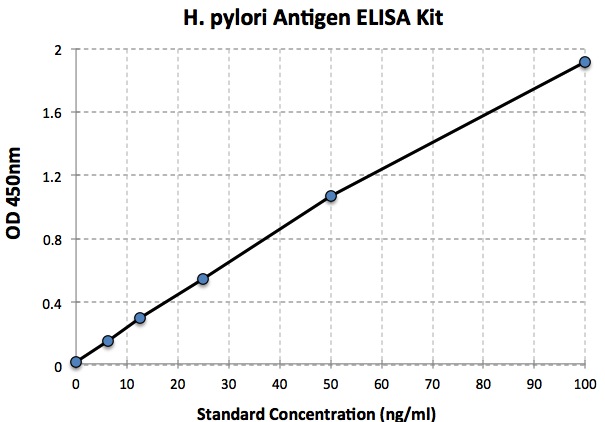Data sheet
| Assay Range | 0-100 ng/ml |
More info
Helicobacter pylori is a Gram-negative, microaerophilicbacterium found in the stomach, which was found in patients with chronic gastritis and gastric ulcers, conditions not previously believed to have a microbial cause. More than 50% of the world's population harbor H. pylori in their upper gastrointestinal tract. Up to 85% of people infected with H. pylori never experience symptoms or complications. Acute infection may appear as an acute gastritis with abdominal pain (stomach ache) or nausea. Where this develops into chronic gastritis, the symptoms, if present, are often those of non-ulcer dyspepsia: stomach pains, nausea, bloating, belching, and sometimes vomiting or black stool. Individuals infected with H. pylori have a 10 to 20% lifetime risk of developing peptic ulcers and a 1 to 2% risk of acquiring stomach cancer. H. pylori has also been associated with colorectal polyps and colorectal cancer.


